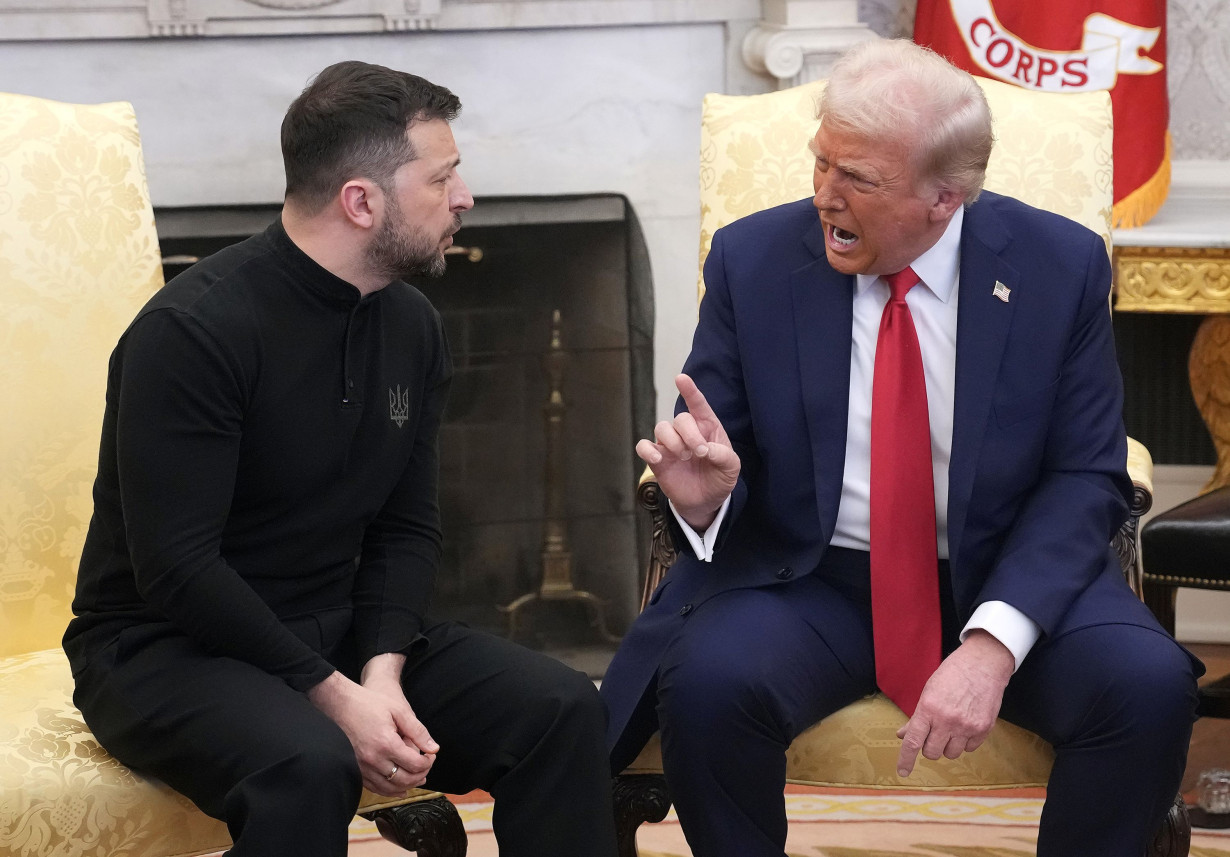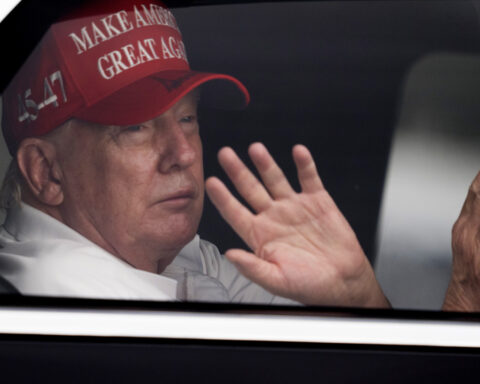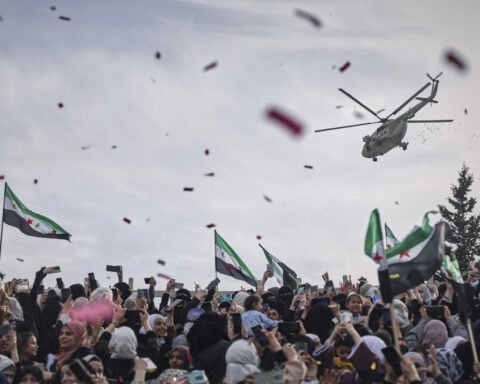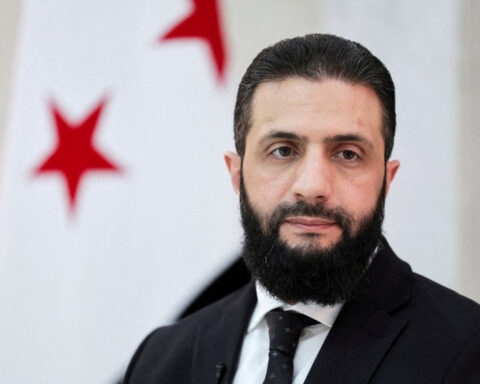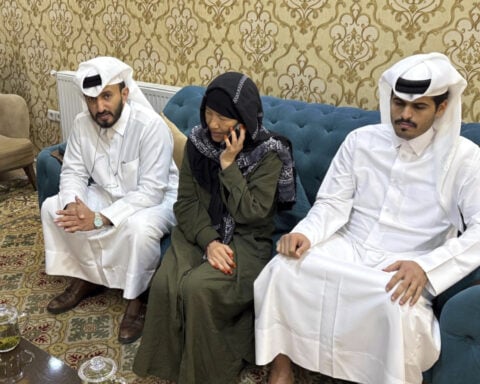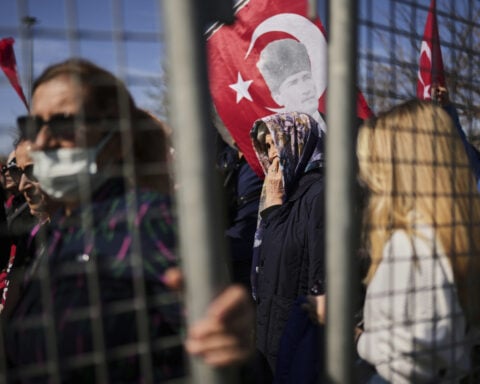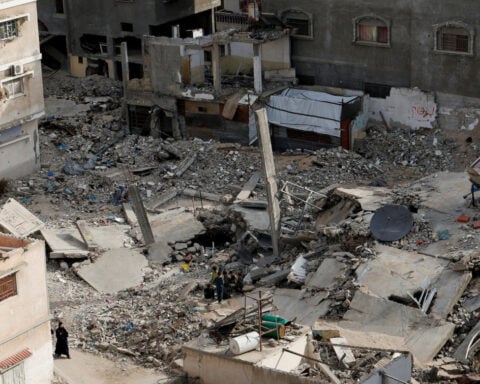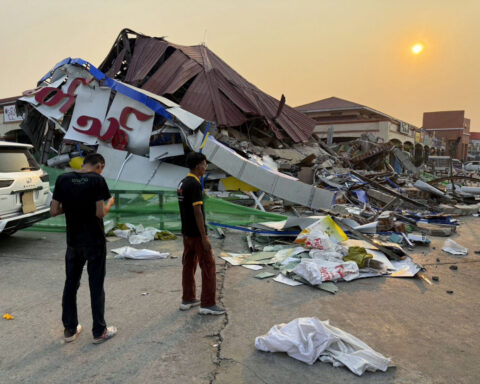(CNN) — Iran is currently mulling over US President Donald Trump’s offer for talks on a new nuclear deal. Its answer will hinge on one key factor: Whether it believes that it can come out of it undefeated.
Last week, Trump sent Iranian Supreme Leader Ayatollah Ali Khamenei a rare letter proposing negotiations on a new nuclear deal, with a two-month ultimatum to reach an agreement, a source familiar with the letter’s contents told CNN.
The communication contained “more of a threatening posture,” but apparently also offered “some opportunities” for Iran, the country’s Foreign Minister Abbas Araghchi said on Thursday, saying a response will come “in the coming days.”
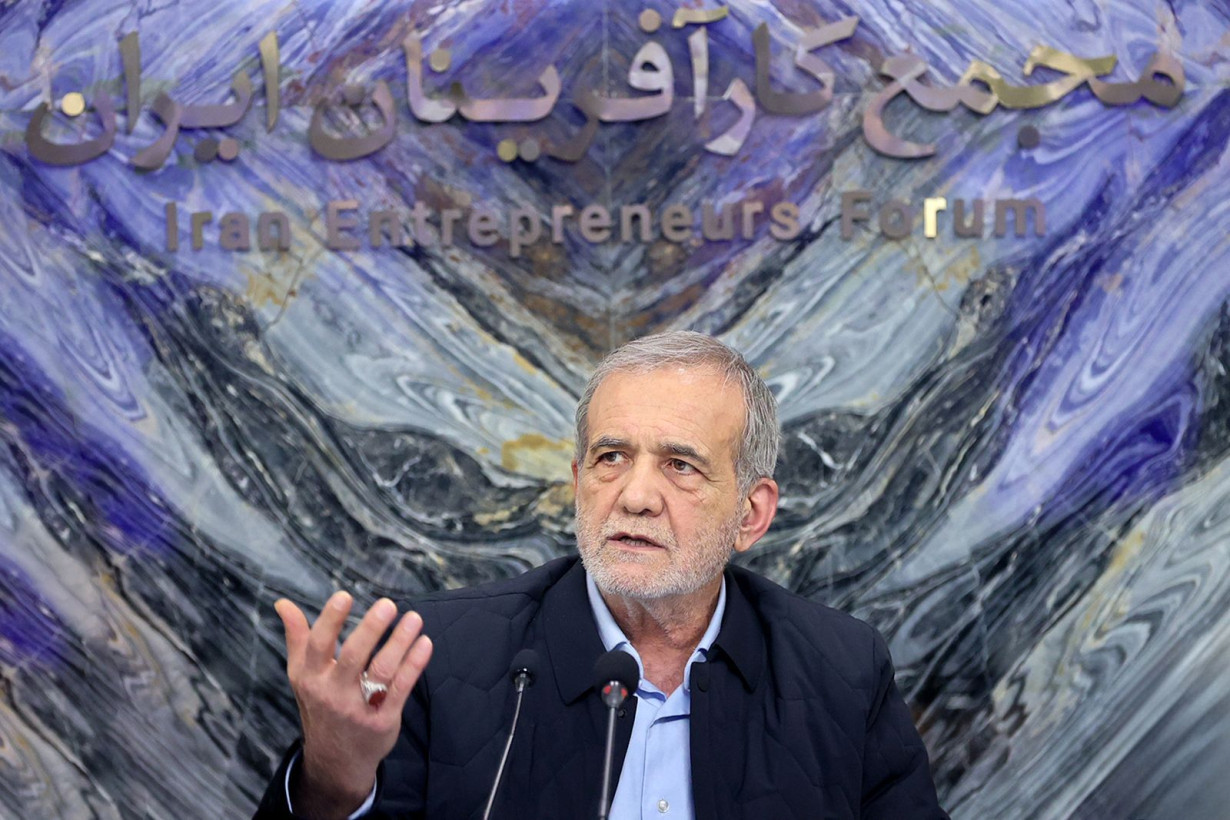
Trump’s envoy, Steve Witkoff, delivered the letter to the president of the United Arab Emirates last week, according to the source, and a UAE official passed it on the Iranians.
In an interview with journalist Tucker Carlson over the weekend, Witkoff offered some insight into the letter’s contents.
“It roughly said: I’m a president of peace, that’s what I want. There’s no reason for us to do this militarily. We should talk. We should clear up the misconceptions. We should create a verification program so that nobody worries about weaponization of your nuclear material, and I’d like to get to that place, because the alternative is not a very good alternative.”
This month, the United States launched strikes on one of the few remaining Iran-allied militias still posing a potent threat to its interests. The attacks on Yemen’s Houthi rebels served as a warning shot – a preview of what Iran itself might face if it refuses to cooperate, US National Security Adviser Mike Waltz told ABC News.
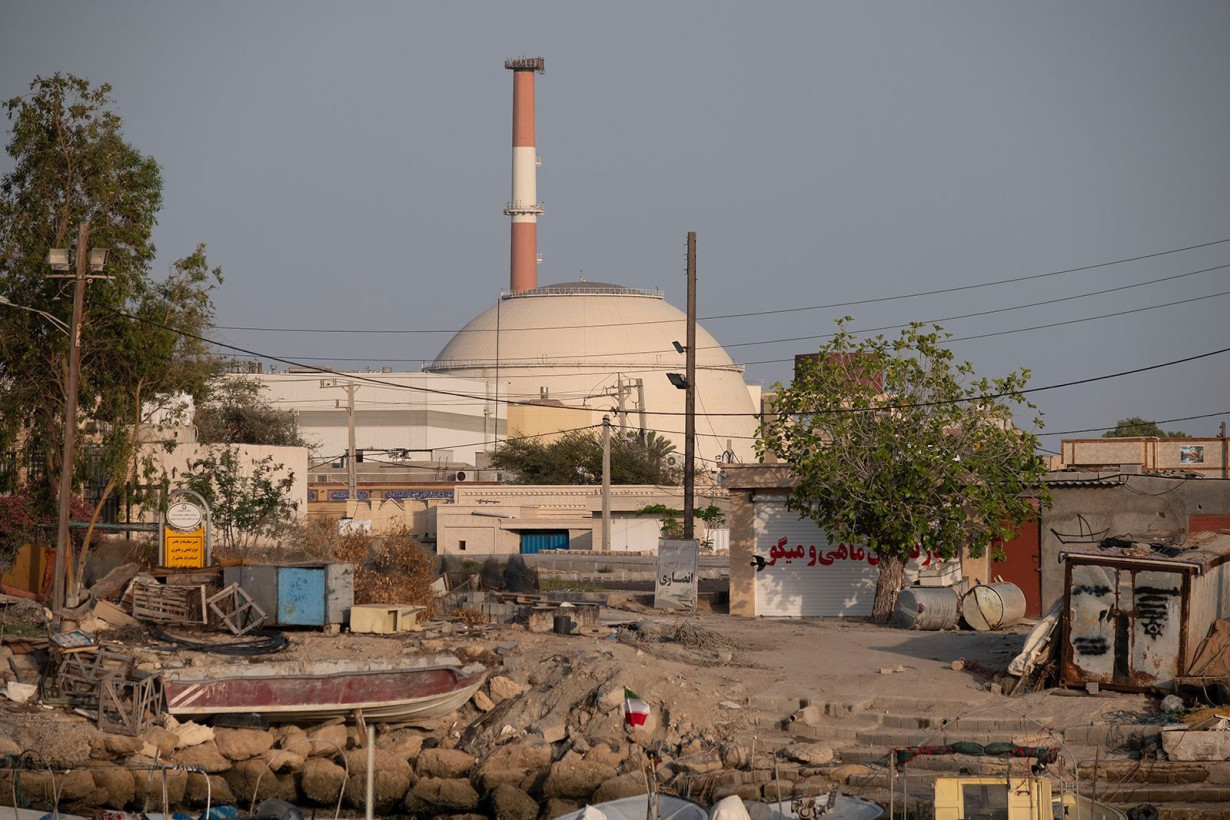
With Iran’s economy in freefall, its grip on the region slipping and public anger mounting, US officials may see a perfect opportunity to force Tehran’s hand – by tightening the economic noose and making the threat of military action unmistakably clear.
But experts warn it won’t be that straightforward: Iran is deeply wary of appearing weak, and the last thing it wants is to be seen as capitulating to Trump.
“This is a very fluid moment,” Sanam Vakil, director of the Middle East and North Africa Programme at the Chatham House think tank in London, told CNN. “There is scope for miscalculation, there is scope for crisis, scope of a military attack on Iran.”
Tehran has in recent weeks repeatedly rejected direct negotiations over a potential nuclear deal with the US, saying it won’t come to the table with a gun pointed to its head and fears that Washington will once again renege on its commitments, as it did seven years ago during Trump’s first presidential term.
In its response to Trump’s recent letter, Iran will take into account “both the threats and the opportunities,” Araghchi said, vowing that it wouldn’t negotiate “under pressure and threats or increased sanctions.”
Talks would have to take place “under equal footing,” he said.
For Iran, giving in to Trump’s maximalist approach of piling on more sanctions and repeatedly threatening military action equates to surrender, a position it is not willing to entertain, experts said.
“The Iranians are trying to disabuse Trump from the belief that they are so weak that capitulation is actually on the table,” Trita Parsi, executive vice president of the Washington DC-based Quincy Institute, told CNN.
‘Do whatever the hell you want’
Iranian leaders have dismissed the idea of speaking to Washington, with President Masoud Pezeshkian saying this month that Iran “won’t bow in humiliation before anyone.”
“I won’t come to negotiate with you. Go do whatever the hell you want,” Pezeshkian was cited as saying by the Tehran Times.
It comes after the Trump administration reinstated a maximum pressure campaign on Iran in February, aimed at preventing the Islamic Republic from building a nuclear weapon.
According to the memorandum, the US would also “implement a campaign aimed at driving Iran’s oil exports to zero,” and deny Iran intercontinental ballistic missiles.
But analysts say that Trump’s efforts to arm-twist the Iranians may not have the desired effect, since yielding to Washington completely is considered as too dangerous a move for Tehran under the current geopolitical climate.
From Iran’s standpoint “the risk of capitulation is even more dangerous, and I don’t think the Trump administration is fully grasping that,” Parsi said.
Since Israel began its war in Gaza on October 7, 2023, Iran and Israel have exchanged two rounds of tit-for-tat attacks, the first time either side has directly attacked the other, as Iran-backed militias across the region launched strikes against Israeli and US interests in protest at the Gaza conflict.
With Israel’s decapitation campaign against Hezbollah in Lebanon, the overthrow of President Bashar al-Assad in Syria and the war in Gaza against Hamas, the Islamic Republic’s influence in the region has weakened significantly.
Its nuclear program is now one of its final points of leverage. In December, United Nations nuclear watchdog chief Rafael Grossi told Reuters that Iran is “dramatically” accelerating its enrichment of uranium to up to 60% purity, closer to the roughly 90% level that is weapons grade. In January, Grossi again warned that Iran is “pressing the gas pedal” on its uranium enrichment.
Iran insists its nuclear program is peaceful.
The Zelensky lesson
Experts point to a deep-seated mistrust in Washington’s reliability as a key factor behind Iran’s hesitation to engage with Trump on a new deal.
A controversial exchange between Trump and Ukrainian President Volodymyr Zelensky at the Oval Office last month only reinforced that idea for the Islamic Republic.
During that exchange, Trump and Vice President JD Vance berated the Ukrainian president in front of international media.
“Zelensky was asked to say ‘thank you,’ admit that Ukraine has ‘no cards,’ and ‘respect’ the Americans after he asked for security guarantees,” the Tehran Times wrote, citing Pezeshkian’s reasons for refusing to talk to Trump.
“You should be ashamed of yourself after what you did to Zelensky recently,” Iranian media cited Pezeshkian as saying.
From Tehran’s perspective, if Washington can turn its back on an ally, there’s little reason to believe it would keep its commitment to an adversary. As Trump’s letter made its way to Iran, Khamenei reiterated his refusal to engage with Washington, reminding the world that this is the same American president who, in 2018, unilaterally withdrew from the landmark nuclear deal brokered with world powers just three years earlier.
Formally known as the Joint Comprehensive Plan of Action, or JCPOA, the agreement was intended to limit Iran’s nuclear program in exchange for the lifting of Western sanctions, thereby preventing Tehran from developing nuclear weapons.
In a post on X this month, Khamenei said Trump was trying to “deceive public opinion” by saying Washington is ready to negotiate.
“How could we hold negotiations with (the) US when we know they don’t fulfill their commitments?” Khamenei said, adding that “if the goal of entering negotiations is for the sanctions to be removed, negotiating with this US administration won’t result in the sanctions being removed.”
Further complicating the potential for new talks between Tehran and Washington are Iran’s domestic politics, with anti-US hardliners and pro-talks reformists jostling for power.
“Conservatives see an opportunity at this moment to attack the Pezeshkian administration, to assert themselves domestically but also perhaps in the nuclear dimension,” Vakil told CNN.
Experts said that it is in the interest of both the US and Iran to strike a deal while they still can.
“Iran’s maximum point of leverage is right now, where there is interest in negotiating and Iran can obtain concessions and sanctions relief during this period,” Vakil said. “The moment Iran weaponizes (its nuclear program), Iran loses that leverage.”
The-CNN-Wire
™ & © 2025 Cable News Network, Inc., a Warner Bros. Discovery Company. All rights reserved.

 Trump has begun another trade war. Here's a timeline of how we got here
Trump has begun another trade war. Here's a timeline of how we got here
 Canada's leader laments lost friendship with US in town that sheltered stranded Americans after 9/11
Canada's leader laments lost friendship with US in town that sheltered stranded Americans after 9/11
 Chinese EV giant BYD's fourth-quarter profit leaps 73%
Chinese EV giant BYD's fourth-quarter profit leaps 73%
 You're an American in another land? Prepare to talk about the why and how of Trump 2.0
You're an American in another land? Prepare to talk about the why and how of Trump 2.0
 Chalk talk: Star power, top teams and No. 5 seeds headline the women's March Madness Sweet 16
Chalk talk: Star power, top teams and No. 5 seeds headline the women's March Madness Sweet 16
 Purdue returns to Sweet 16 with 76-62 win over McNeese in March Madness
Purdue returns to Sweet 16 with 76-62 win over McNeese in March Madness
